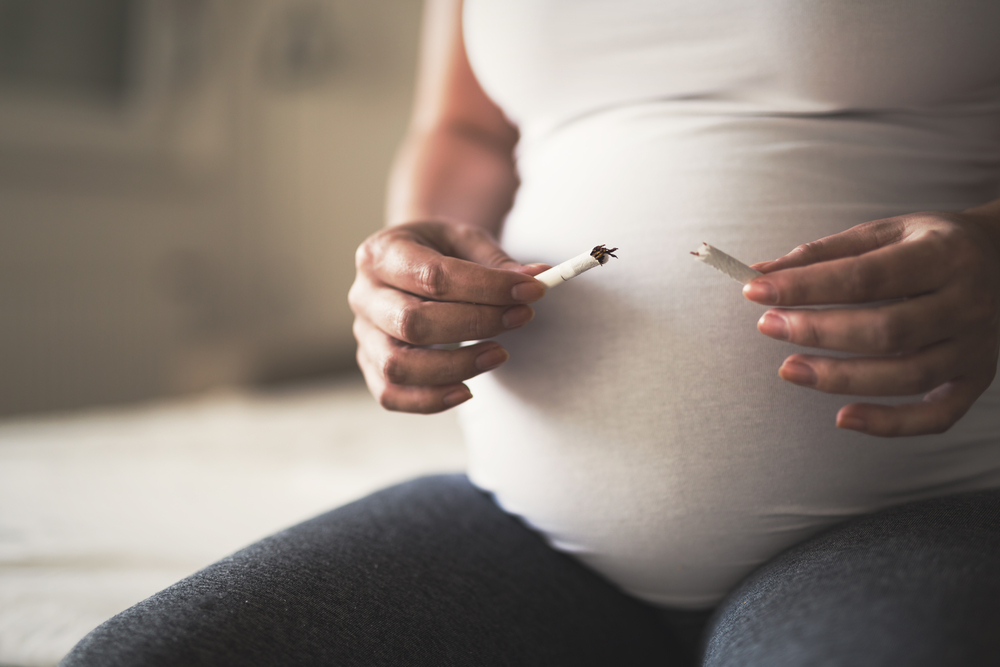Marijuana Use on the Rise Among Pregnant Women

Get the world’s most fascinating discoveries delivered straight to your inbox.
You are now subscribed
Your newsletter sign-up was successful
Want to add more newsletters?

Delivered Daily
Daily Newsletter
Sign up for the latest discoveries, groundbreaking research and fascinating breakthroughs that impact you and the wider world direct to your inbox.

Once a week
Life's Little Mysteries
Feed your curiosity with an exclusive mystery every week, solved with science and delivered direct to your inbox before it's seen anywhere else.

Once a week
How It Works
Sign up to our free science & technology newsletter for your weekly fix of fascinating articles, quick quizzes, amazing images, and more

Delivered daily
Space.com Newsletter
Breaking space news, the latest updates on rocket launches, skywatching events and more!

Once a month
Watch This Space
Sign up to our monthly entertainment newsletter to keep up with all our coverage of the latest sci-fi and space movies, tv shows, games and books.

Once a week
Night Sky This Week
Discover this week's must-see night sky events, moon phases, and stunning astrophotos. Sign up for our skywatching newsletter and explore the universe with us!
Join the club
Get full access to premium articles, exclusive features and a growing list of member rewards.
Marijuana use among pregnant women in the U.S. increased by 62 percent from 2002 to 2014, a new study finds.
Researchers found that 3.9 percent of pregnant women reported on a 2014 government survey that they had used marijuana during the past month, up from 2.4 percent who said the same on a 2002 survey, according to the study.
Although this 3.9 percent rate "is not high, the increases over time and potential adverse consequences of prenatal marijuana exposure suggest further monitoring and research are warranted," the researchers, led by Qiana Brown, an epidemiologist at Columbia University's Mailman School of Public Health in New York City, wrote in their report. [7 Ways Pregnant Women Affect Babies]
Nearly 4 million women gave birth in the U.S. in 2014, according to the Centers for Disease Control and Prevention.
Americans in general have been using more marijuana since 2001, according to the study, which was published today (Dec. 19) as a research letter in the journal JAMA. Indeed, previous research has shown that between 2001 and 2013, marijuana use among adults more than doubled, according to the report.
However, it was unclear if marijuana use also changed in pregnant and nonpregnant women of reproductive age.
In the new study, the researchers looked at data on more than 200,000 women ages 18 to 44 who had completed the National Survey on Drug Use and Health from 2002 through 2014. The annual survey on drug use includes questions about the participants' drug use in the previous month. About 5 percent of the women (or approximately 10,500 women) were pregnant when they were surveyed.
Get the world’s most fascinating discoveries delivered straight to your inbox.
Aside from the overall rate of use, the researchers also looked at how the rate of use varied across age groups. They found that the rate of marijuana use was higher among women ages 18 to 25 than it was in women ages 26 to 44. In 2014, the rate of past-month marijuana use for women in the younger age group was 7.5 percent, compared with 2.1 percent for the women in the older group, the researchers found.
For nonpregnant women of reproductive age, the researchers found that the rates of past-month marijuana use also increased during the study period, from 6.3 percent in 2002 to 9.3 percent in 2014.
"To ensure optimal maternal and child health, practitioners should screen and counsel pregnant women and women contemplating pregnancy about prenatal marijuana use," the researchers wrote.
Writing in an editorial that was published in the same journal as the study, Dr. Nora Volkow, director of the National Institute on Drug Abuse, and two of her colleagues noted that "although the evidence for the effects of marijuana on human prenatal development is limited at this point, research does suggest that there is cause for concern."
For example, a recent review and meta-analysis found that babies born to women who used marijuana during pregnancy were more likely to be anemic, have lower birth weights and require placement in neonatal intensive care than the babies of mothers who did not use marijuana, the authors wrote in the editorial.
In addition, there is a possibility that marijuana could affect the neurodevelopment of a fetus very early in pregnancy, according to the editorial. However, one challenge to this research is separating the effects of marijuana use during pregnancy from the use of other substances, such as alcohol and tobacco, which are often used at the same time, they wrote.
The researchers noted that there were limitations to their study. For example, the researchers relied on the women self-reporting their marijuana use.
Originally published on Live Science.

 Live Science Plus
Live Science Plus











